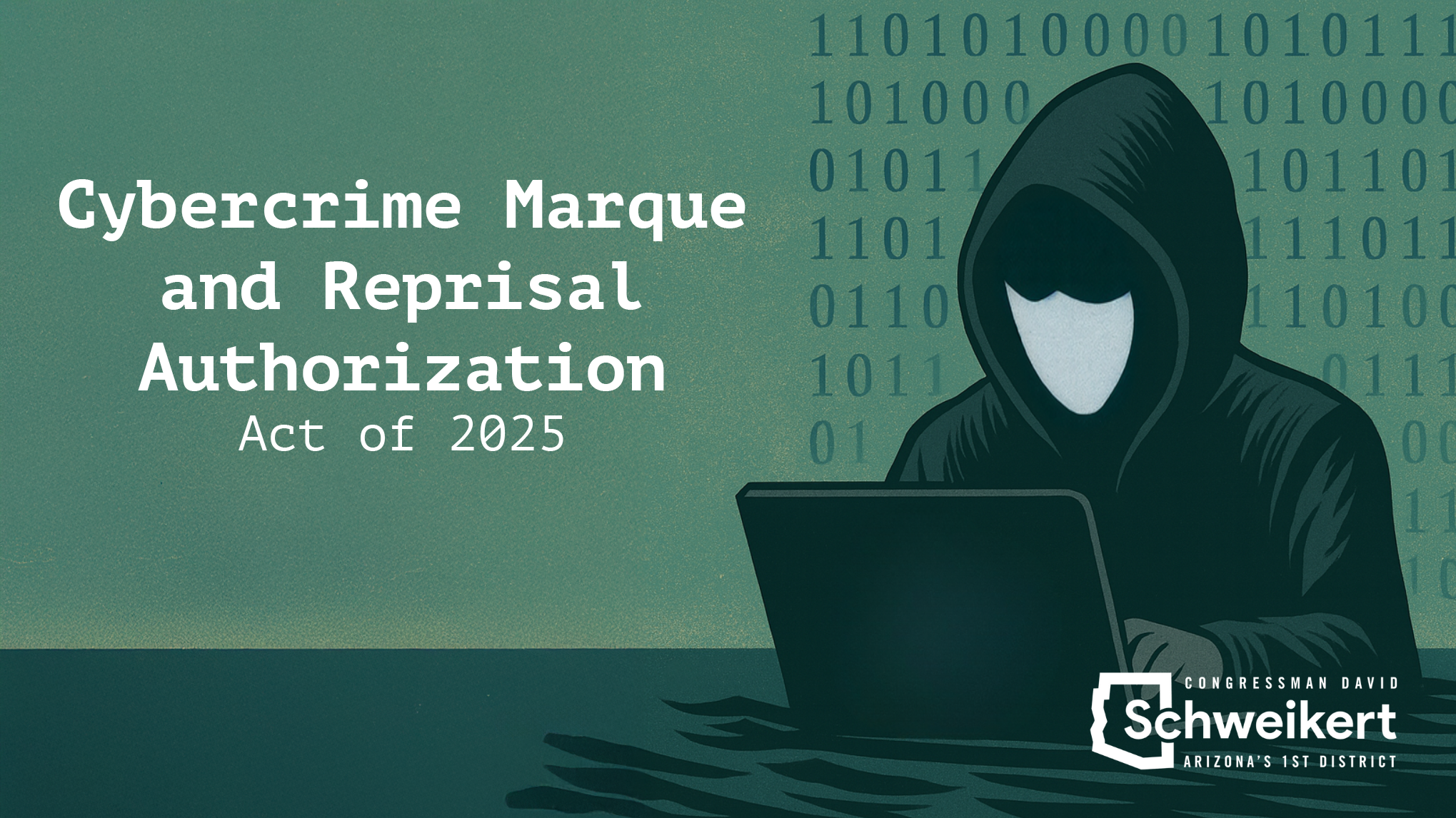WASHINGTON, D.C. — Last week, Congressman David Schweikert (AZ-01) introduced the Cybercrime Marque and Reprisal Authorization Act of 2025, H.R. 4988. This legislation revives Congress’s Article I authority to issue letters of marque and reprisal, allowing the executive branch to deputize licensed cyber operators to pursue foreign cybercriminal enterprises targeting American citizens and infrastructure.
“Criminal syndicates backed by foreign governments are using cyberspace to prey on American seniors, steal intellectual property, and undermine national security,” said Rep. Schweikert. “Our current tools are failing to keep pace. This legislation allows us to effectively engage these criminals and bring accountability and restitution to the digital battlefield by leveraging the same constitutional mechanism that once helped secure our nation’s maritime interests.”
According to the FBI’s 2024 Internet Crime Report, Americans filed over 859,000 complaints, totaling $16 billion in losses, with a 33 percent increase in losses compared to 2023. Americans over 60 suffered nearly $5 billion in reported financial damages. Many of these cyberattacks originate from sophisticated “scam farms” in places like Myanmar and North Korea, where large-scale operations are often state-linked and designed to steal from Americans while infiltrating U.S. digital systems.
Under Article I, Section 8 of the Constitution, Congress has the authority to issue letters of marque and reprisal. During the French and Indian War, the American Revolution, and the quasi-war with France, these commissions played a central role in maritime defense. The Articles of Confederation explicitly granted Congress this power—a provision carried forward into the Constitution. Although the federal government has not issued letters of marque since the War of 1812, an unusual example occurred during World War II, when a Goodyear blimp was commissioned for anti-submarine patrols off the California coast.
The proposed legislation allows the executive branch to issue limited, targeted commissions to disrupt these foreign cybercriminal enterprises. These licensed cyber operators would be authorized to recover stolen assets, prevent future attacks, and defend critical infrastructure, all while operating under federal oversight.
“Americans deserve protection from digital predators who exploit outdated laws and hide in foreign jurisdictions,” Schweikert added. “This proposal harnesses innovation and constitutional authority to respond to the modern crisis of cybercrime.”
You can read the full bill text here.
Back to News


